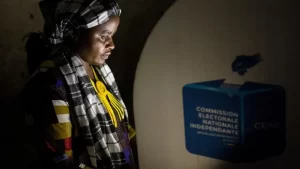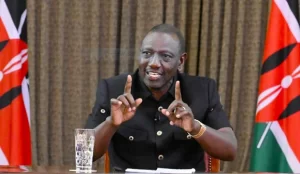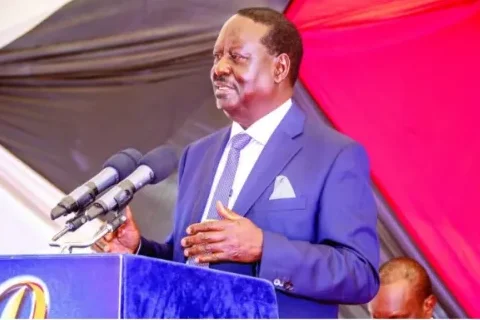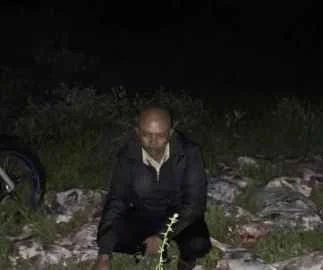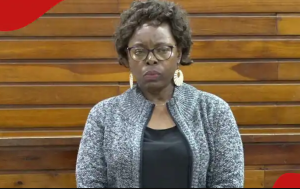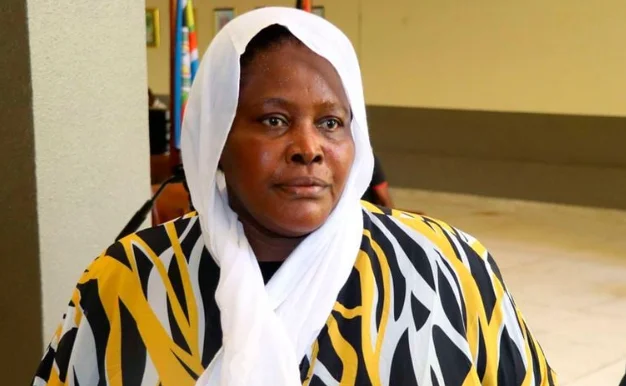Economic Exodus: Raila Slams Ruto’s Administration for Job Woes, Urges Return to Founding Vision
In Summary:
Raila Odinga, the One Kenya Coalition Party Leader, has criticized President Ruto’s administration for its role in the increasing emigration of Kenyans, attributing the trend to the government’s failure to create sufficient job opportunities domestically. Speaking at the Catholic University during a lecture titled ‘A Vision for the Next 60 Years and Beyond,’ Odinga emphasized the need for a paradigm shift in government policies to address the economic challenges that have fueled the exodus.
During his address, Odinga lambasted the Kenya Kwanza administration for actively promoting job opportunities abroad while neglecting to prioritize job creation within the country.
He underscored the irony of the government’s efforts to secure jobs for Kenyans abroad, stating, “Once upon a time, Kenyans were so proud and confident of their nation that they refused to seek jobs abroad, including with the UN.”
He lamented the current scenario where “our people are scrambling to leave the country,” citing a Pew Research study indicating that “up to 54 per cent of Kenyans would wish to relocate from the country.”
Odinga highlighted the government’s misplaced priorities, criticizing the focus on securing farm and house jobs for Kenyans abroad rather than creating better employment opportunities at home. He expressed concern over the exportation of young, skilled individuals, stating, “Young people with the new skills and knowledge that we need are being exported because the government cannot create jobs. And the government sees it as an achievement.”
The opposition leader accused the current regime of deviating from the ideals of the second liberation for Kenya, pointing to entrenched issues of corruption and tribalism within the administration. He decried the official sanctioning of corruption and tribalism, asserting, “Corruption is killing our future. Tribalism is stealing our potential.” Odinga voiced his distress over the nation’s current state, stating, “Today, we are way off the original dream.”
Despite the grim assessment, Odinga expressed optimism that a return to the founding vision of the country could pave the way for a brighter future.
He envisioned Kenya emerging as “one of Africa’s greatest democracies and a secure and flourishing homeland for her children.” Odinga urged a renewed focus on democracy, human rights, and the rejection of corruption to achieve equitable wealth distribution.
Conclusion:
Raila Odinga’s critique of the government’s economic policies sheds light on the challenges contributing to the rise in emigration among Kenyans. The failure to prioritize job creation domestically has led to a significant brain drain, with skilled individuals seeking opportunities abroad. Odinga’s call for a return to the founding vision offers a glimmer of hope for a future characterized by democratic governance, respect for human rights, and an end to corruption.
Frequent Asked Questions and Answers:
Q1: How did Raila Odinga describe the current trend of Kenyan emigration?
A1: Odinga expressed concern over the increasing emigration trend, stating that “our people are scrambling to leave the country” and referencing a Pew Research study indicating the desire of up to 54 per cent of Kenyans to relocate.
Q2: What specific issues did Odinga raise regarding the government’s priorities in job creation?
A2: Odinga criticized the government for focusing on securing jobs for Kenyans abroad, particularly in farming and housekeeping, instead of creating better employment opportunities within the country.
Q3: How did Odinga characterize the state of corruption and tribalism under the current regime?
A3: Odinga accused the current administration of officially sanctioning corruption and tribalism, describing them as burdens that are “killing our future” and “stealing our potential.”
Q4: Are there any examples provided of skilled individuals seeking employment opportunities abroad due to the lack of jobs in Kenya? A3: While Odinga mentions that young people with new skills are being exported, the specific examples or industries affected are not detailed in the given information. Odinga highlights a general trend rather than specific instances.


